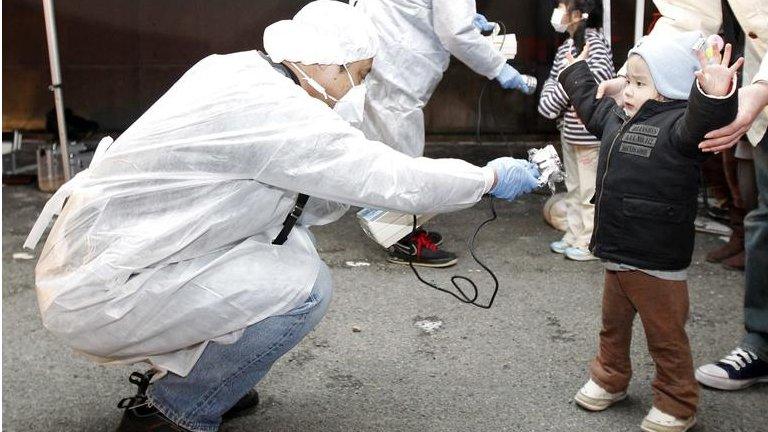Copeland by-election goes nuclear
- Published
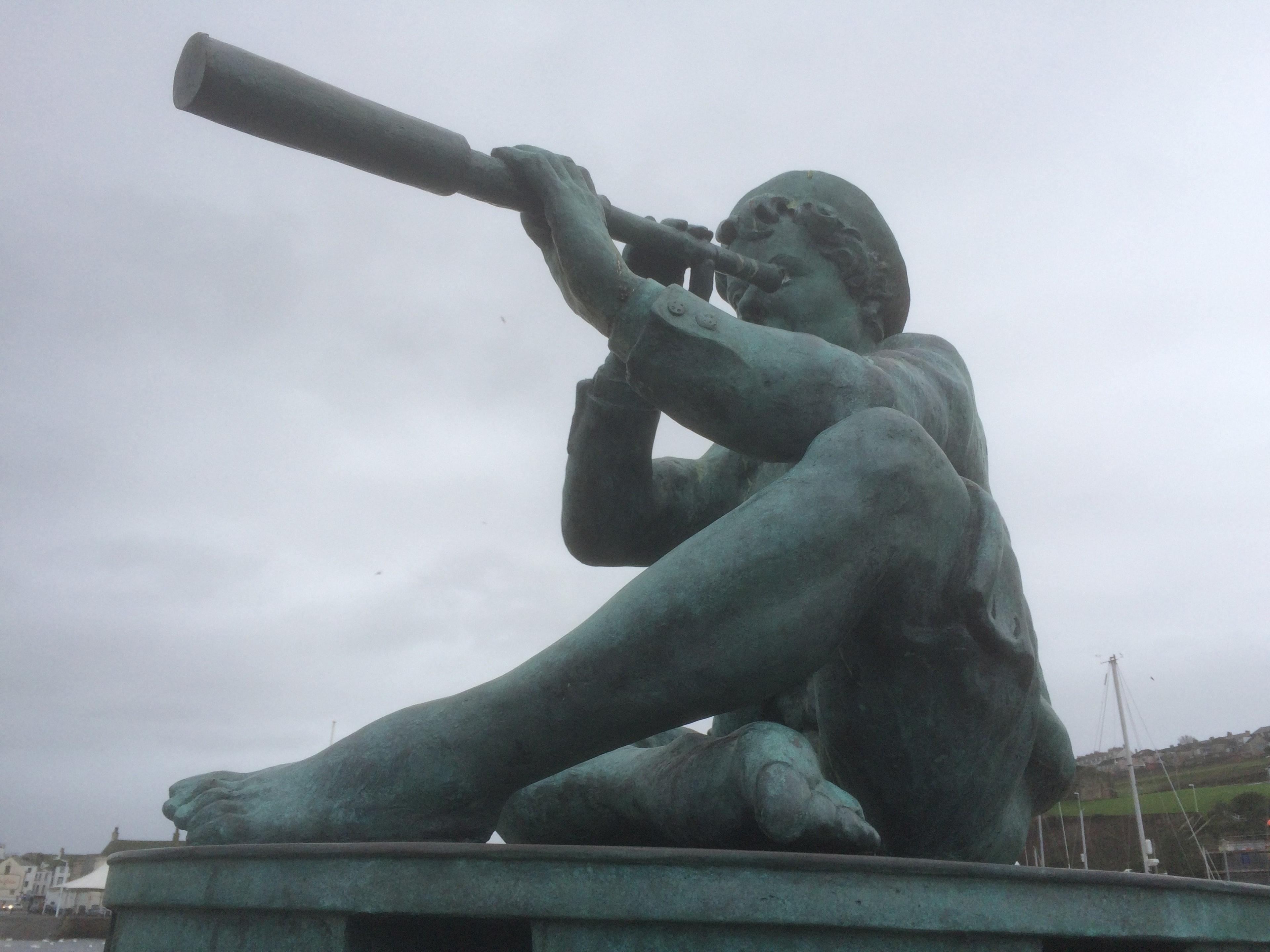
A by-election will be held in Copeland later this year
Ross Hawkins visits Copeland in Cumbria where the outgoing Labour MP is yet to leave his job but campaigning to elect his replacement has already begun in earnest.
Conservatives are putting Jeremy Corbyn at the centre of their Copeland by-election campaign.
His image is all over Tory leaflets, and their logic is very simple.
Copeland relies on the nuclear industry and Jeremy Corbyn has opposed new nuclear power stations.
It means that when a by-election date is set, the contest in Cumbria could reveal a lot about how national politics will play out in the coming months.
Tories will highlight an issue that divides Mr Corbyn and his colleagues.
But amid a huge local row about hospitals, Labour may discover how much damage troubles in the NHS have done to the Conservatives.
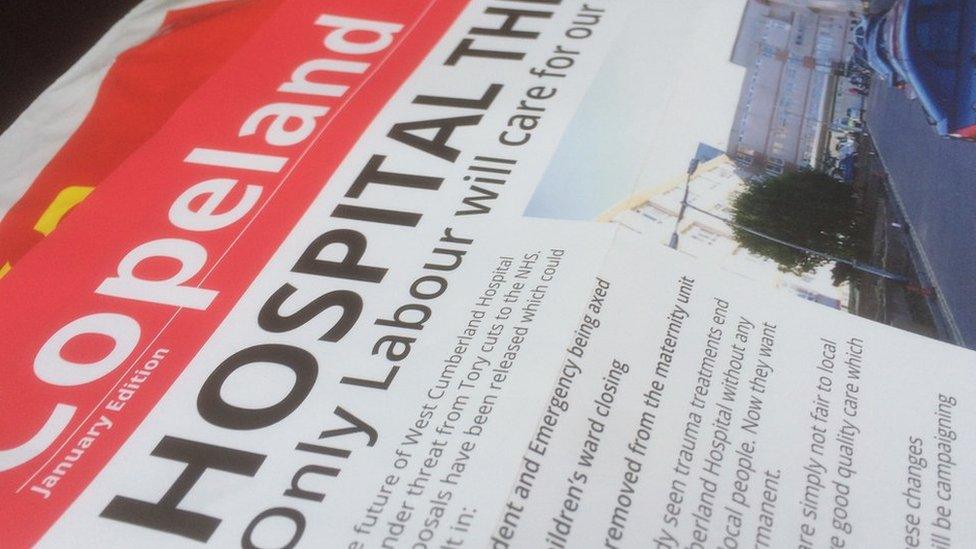
Labour's campaign focuses on a row about local hospitals
Chat to voters in the constituency and you hear two concerns: jobs and healthcare.
In the butcher's in Whitehaven, one customer, Geoffrey Boyle, says: "This spot's dead enough already. There's hardly any life around here now. If nuclear goes, this town will be dead."
The economy revolves around Sellafield, and job numbers are set to fall there as reprocessing work ends. A new nuclear power station is proposed.
Labour backs new nuclear energy, and local politicians certainly do. But Mr Corbyn has made plain in the past that he disagrees.
A policy document, external for his leadership campaign in 2015 says plainly: "I am opposed to fracking and to new nuclear on the basis of the dangers posed to our ecosystems."
In a 2011 speech, external in the wake of the Fukushima disaster he went further, suggesting existing nuclear power stations should be decommissioned.
Sources close to Mr Corbyn say he no longer believes that's practical but Tories campaigning in Copeland have seized on his words.
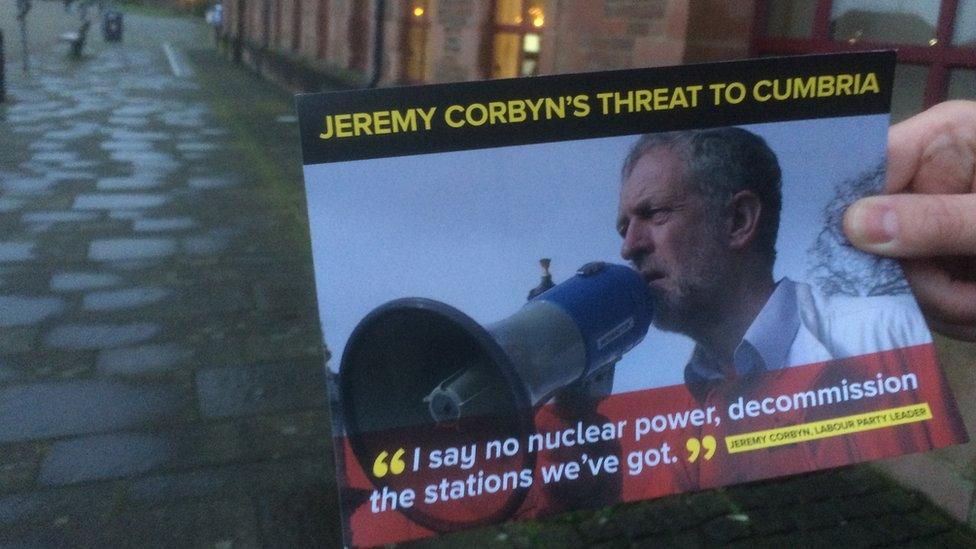
The Convervatives hope to exploit Labour divisions over nuclear power
Councillor, local Labour party secretary and would-be candidate Gillian Troughton says: "Jeremy Corbyn is not the entire Labour party and Labour policy is for the green, low-carbon energy policy of which nuclear power is a key part."
UKIP, which came third here at the last election, boasts that it can take Labour votes. Fiona Mills - who has been UKIP's candidate in Carlisle - is hoping to contest Copeland. She says: "When I stood in the general election I definitely took voters away from Labour because people told me that."
But while people here are worried about nuclear jobs, many are furious about healthcare.
There is a proposal to move services, including a consultant-led maternity unit, from the hospital in Whitehaven 40 miles down a slow, twisting road to Carlisle.
Michelle, who works in the butcher's, says: "Why don't we stick a fellow in the back of an ambulance who's making these decisions and stick a monitor on him that creates the pain the same as labour and see how he feels about that?"
Labour's message is that only it will care for the local NHS.
Conservative councillor Kevin Beaty says what happens to the hospital is a decision for the local NHS and blames "a PFI in the north set up under the last Labour government that is really difficult from a financial point of view for them".
But with a decision about the hospital due in March, potentially before a by-election date, it's a clear and present danger to Tory hopes.
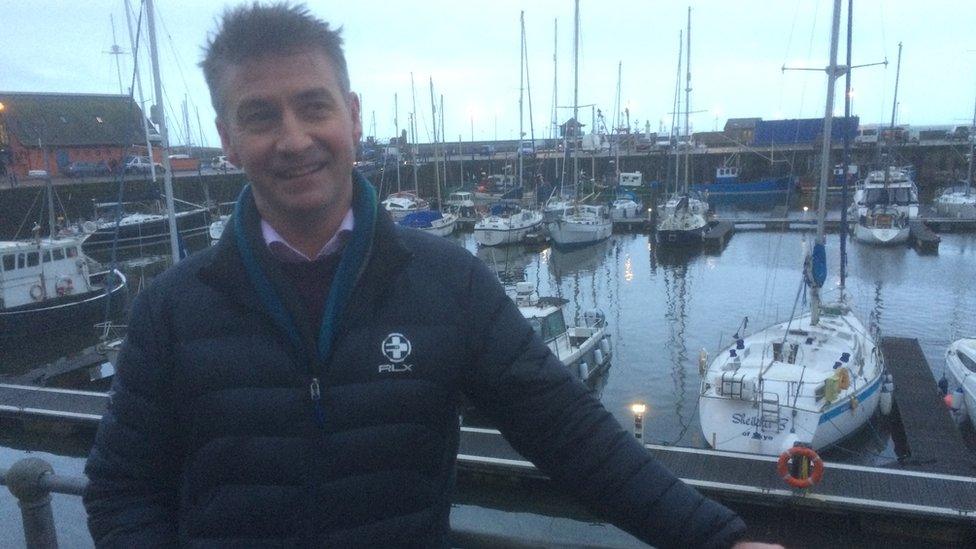
What happens to the hospital is a decision for the local NHS, says Tory councillor Kevin Beaty
If the Conservatives win, it will be the first time since 1982 the governing party has gained a seat in a by-election. Should that happen, Jamie Reed - the departing Labour MP - will in prompting the contest have done deeper damage to Mr Corbyn than he ever managed in many months criticising his leader. If Labour fails here blame will be piled deep at the door of the party leader.
Yet speculation about an electoral upset has raised Tory expectations in a patch that has been Labour since 1935. Merely holding on to a seat that even Margaret Thatcher couldn't seize could yet wind up feeling like a win for Labour.
If it's successful, a Labour strategy of responding to relentless attacks on Mr Corbyn with an equally relentless focus on the NHS may provide a model for the opposition in the years ahead.
- Published21 December 2016
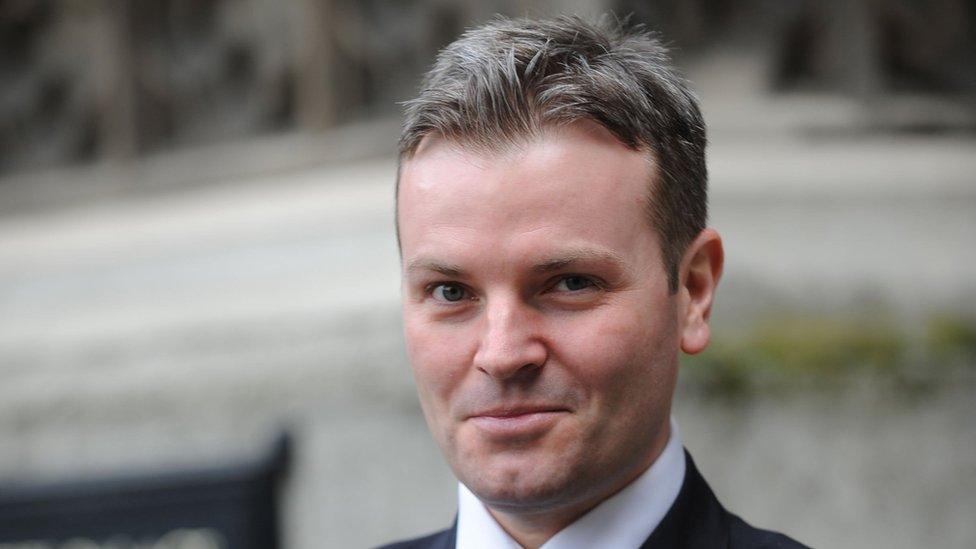
- Published11 January 2017
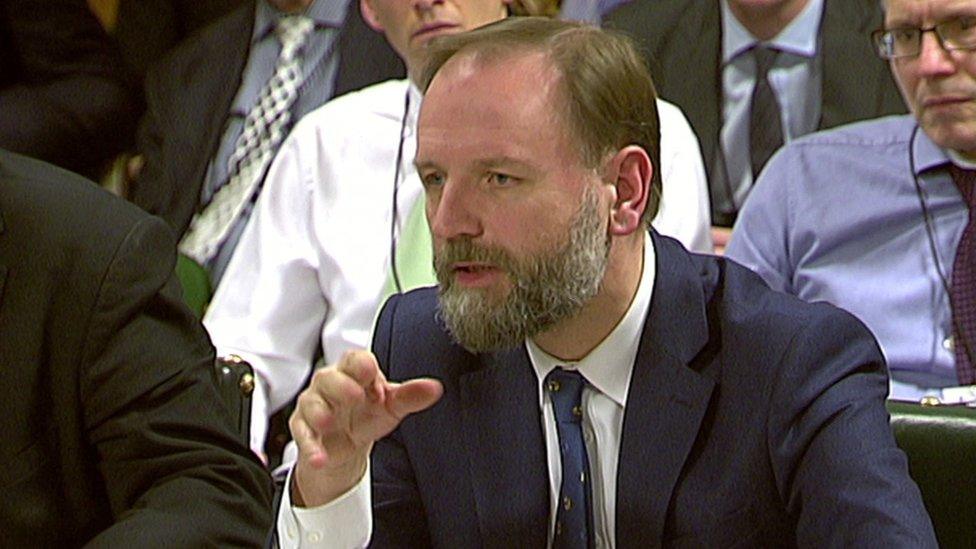
- Published5 July 2012
